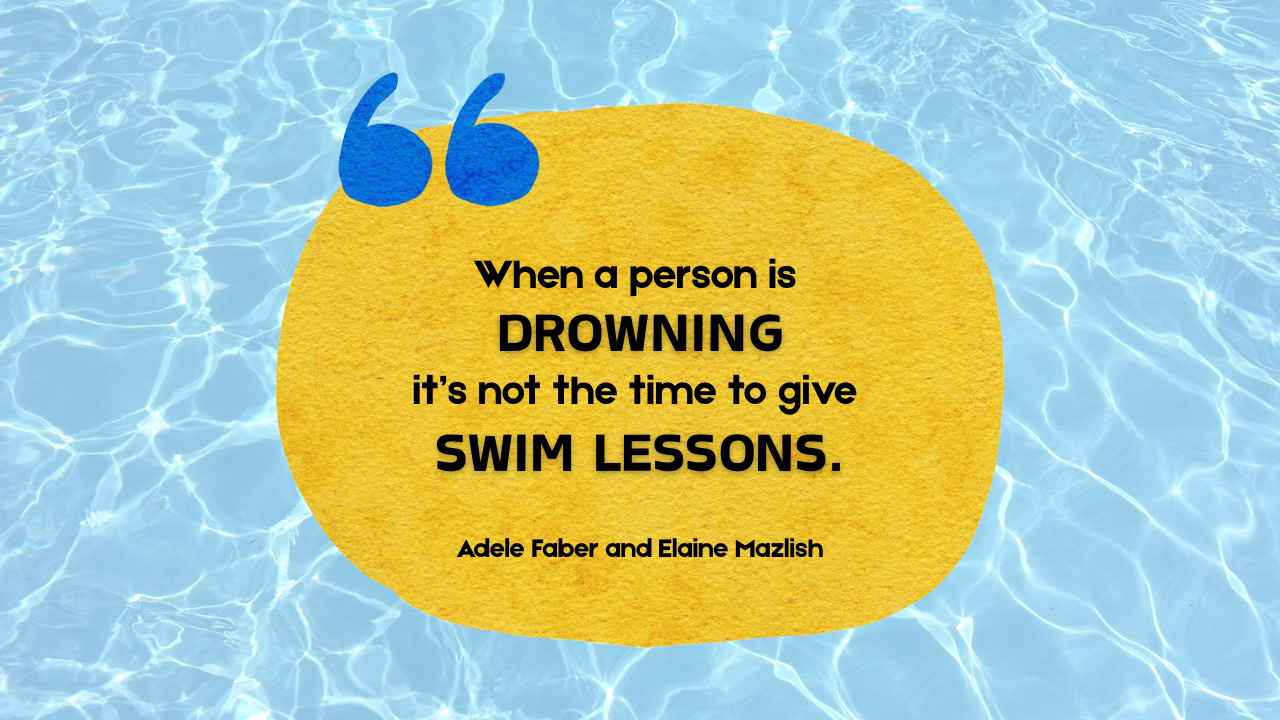
I recently came across a quote by Adele Faber and Elaine Mazlish that stopped me in my tracks: “When a person is drowning, it’s not the time to give swimming lessons.” As a teacher, I couldn’t help but think about how often we encounter students, and colleagues, who feel like they’re barely keeping their heads above water.
We’ve all had that student. The one who walks into class already carrying the weight of the world. Maybe they didn’t get enough sleep, maybe there’s turmoil at home, or maybe they’re just overwhelmed by the demands of school. And yet, in the midst of their struggle, we sometimes expect them to perform at their best. We push them to meet deadlines, master new content, or “just focus” when their minds are drowning in stress.
But what if, instead of pushing, we threw them a lifeline? What if we acknowledged their struggle before expecting them to push forward? Sometimes, that lifeline is as simple as a check-in: “Hey, you seem a little off today. What’s going on?” Other times, it’s a flexible deadline, a quiet space to work, or just a moment of encouragement that says, “I see you. I’m here.”
And it’s not just students. Teachers, too, can feel like they’re drowning—buried under lesson plans, behavior challenges, meetings, and the constant pressure to do more with less. When a colleague is struggling, they don’t need advice on “managing their time better” or “staying positive.” They need support. A small gesture—covering a duty, dropping off a coffee, or simply saying, “You’re doing an amazing job”—can be the lifeline that helps them keep going.
Teaching isn’t about standing on the shore, shouting instructions. It’s about diving in when someone is struggling and helping them find solid ground. Because once they can breathe, once they feel safe, then—and only then—can we teach them how to swim.
This article might be missing links that were included at the time of publication.

